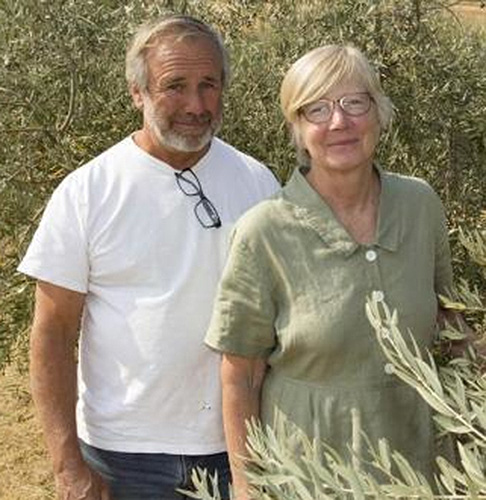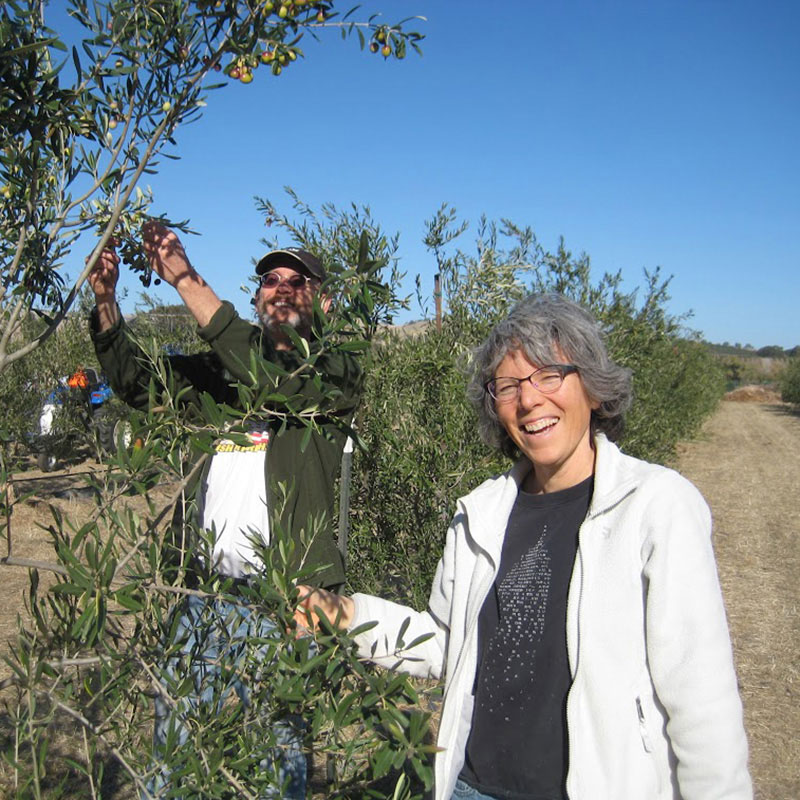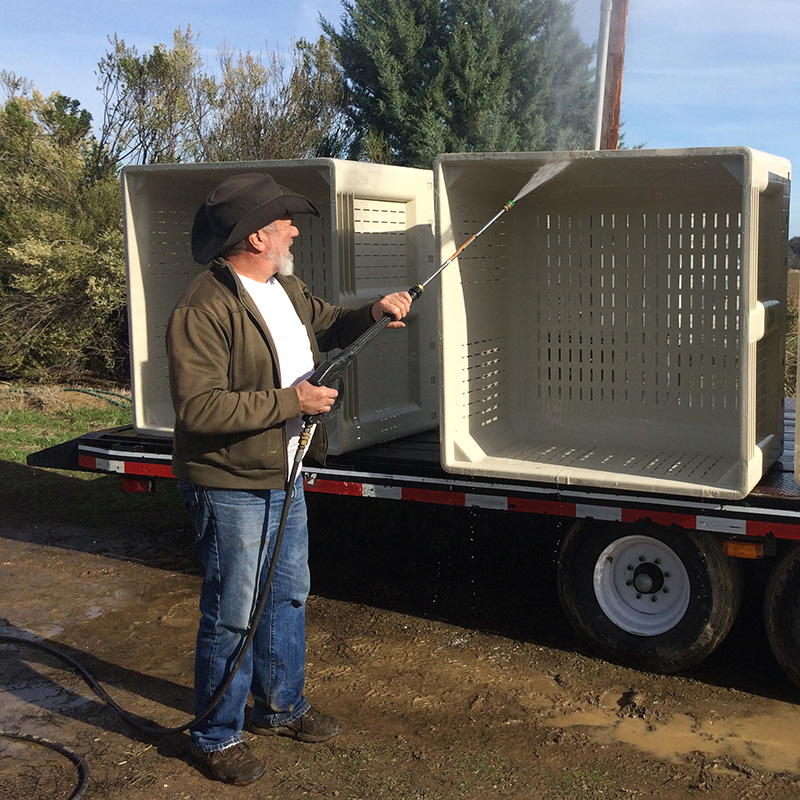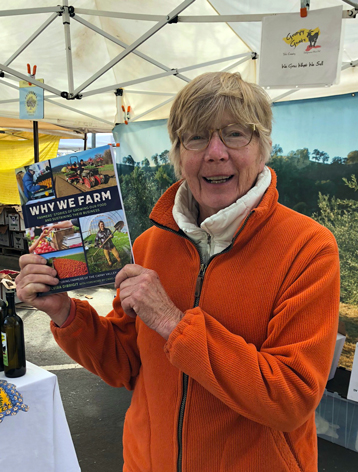
Stuart Littell and Pamela Marvel are partners in life and in business. When Pamela prepared to make good on a life-long dream –to live in the country as she had growing up on a dairy farm in Wisconsin–. Stuart was a full backer and supporter. Pamela wanted to be an active participant in rural life too, a traditional farmer who grew crops, nurtured the soil and improved the environment. After some deliberation, they decided to look for the ideal place to locate a small olive orchard, where they could produce their own olive oil. In early 2008 they bought a 20 acre farm in Capay Valley, about 35 miles west of Sacramento. It was just an alfalfa field.
Stuart and Pamela have a set of shared values that have guided their work on the farm. Pamela comes from a family of Norwegian and German farmers, some of whom immigrated to the Midwest in the 1800s. Good stewardship of the land was important to these farmers, including her parents, who set a fine example of good farming practices and hard work. Stuart’s Scottish grandparents helped manage national parks in the Sierras for decades. His family has a deep affection for nature, and a strong interest in caring for the environment. It was natural, therefore, for Stuart and Pamela to farm organically, to use good conservation practices, to develop wildlife habitat, to use native species of plants for habitat and cover crops, and in general to try to live a life respectful of nature.
They also have complementary talents that they put to good use developing the farm: Pamela is an experienced project manager, having worked for information technology firms in Silicon Valley for years. Stuart is a skilled general contractor who designs and builds beautiful homes. He is also an expert mechanic, and has a fine stable of old Chevy trucks.
Together they have made good progress on the farm: There are now 3000 olive trees on 17 acres. Coratina, Picual, Pendolino, Itrana, Barnea, Hojiblanca, and Nocellera del Belice varietals have been planted. Hedgerows of native trees, shrubs, flowers for birds and pollinators are thriving. Dozens of shade and fruit trees have been planted around the farmstead. Drip irrigation has been installed throughout. The work continues.

Farming Practices

Harvesting

Milling
Certification/Lab Results
Here are the results of their lab tests:
*Polyphenol levels correlate with key sensory oil properties: bitterness and pungency, associated with olive oil style. The International Olive Council categorizes olive oils as mild, medium or robust in flavor intensity depending upon their tested phenol levels. Our oils are generally medium to highly robust intensity.
Our oil is certified as extra virgin olive oil by the COOC and our farm is certified organic by CCOF.
| Varietal | Harvest Year | PV | FFA | UV K232 | UV K270 | UV Delta K |
|
|
| Coratina | ||||||||
| Picual | ||||||||
| Pendolino | ||||||||
| Italian Blend | ||||||||
| Frantoio | ||||||||
Awards
Each year we have participated in what we consider to be the most significant US competitions for Extra Virgin Olive Oil. We have won medals for our oils each year.
The COOC competition is open to California producers who have had their oil certified extra virgin by the California Olive Oil Council (COOC). Generally over 100 oils are submitted for judging.
The Yolo County Fair competition is open to all California producers and is judged by a tasting panel selected in collaboration with the UC Davis Olive Center. Generally over 100 oils are submitted for judging.
The Los Angeles International Olive Oil Competition is one of the world’s largest, attracting olive oils from around the world. Between 500-600 oils are submitted for the spring competitions.
The New York Olive Oil Competition claims to be one of the world’s largest EVOO competitions, with over 700 entries from 25 countries.
California State Fair Competition is open to all California producers. Their inaugural contest was held in 2015 and they have been receiving over 100 oils for judging each year. In 2016 Grumpy Goats Farm won a division award for ‘Best California Extra Virgin Olive Oil by an Artisan Producer’.
| Corotina | Picual | Pendolino | Frantoio | Italian Blend |
Press
In 2017 our neighbor Elvira Dibrigit published a book of farmers’ stories of growing our food and sustaining their business. “Why We Farm” shined a spotlight on the challenges and rewards of independent farming, and featured farmers of the Capay Valley, including Grumpy Goats Farm.
Stuart and I were delighted to be interviewed in 2015 by the Good Day morning show on Sacramento’s CBS channel 13 TV. They were interested in hearing about our farming practices and what goes into making award-winning olive oil.
See links below if you want to view the two short segments that were filmed:
http://gooddaysacramento.cbslocal.com/video/3266971-olive-oil-farm/
http://gooddaysacramento.cbslocal.com/video/3266986-olive-oil-farm-pt-2/
Western Farm Press visited our farm and wrote about how Grumpy Goats Farm creates its award-winning oils.
http://westernfarmpress.com/orchard-crops/grumpy-goats-farm-recognized-extra-virgin-olive-oil

